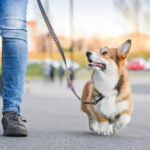Table of Contents
Potty training your new puppy is a crucial step in ensuring a clean and harmonious home. With the right approach and patience, you can successfully train your puppy to eliminate in the appropriate place. Here are 10 essential tips for potty training puppies to help you through the process.

1. Establish a Routine: Tips for Potty Training Puppies
Consistency is key to successful potty training. Establish a routine by taking your puppy outside at the same times each day, such as first thing in the morning, after meals, and before bedtime.
- Tip: Puppies typically need to eliminate every 2-3 hours. Set a timer to remind yourself to take them outside. For more information, visit AKC.
2. Choose a Designated Potty Area
Select a specific spot outside where you want your puppy to eliminate. Consistently bringing your puppy to the same area helps them understand that this is their bathroom spot.
- Tip: The scent from previous eliminations will encourage your puppy to use the same spot. For more advice, visit PetMD.
3. Use Positive Reinforcement: Tips for Potty Training Puppies
Reward your puppy with treats, praise, or playtime immediately after they eliminate in the designated area. Positive reinforcement helps reinforce the desired behavior.
- Tip: Keep treats handy to reward your puppy right after they finish. For more tips, visit Cesar’s Way.
4. Supervise Your Puppy
Keep a close eye on your puppy when they are indoors to prevent accidents. Use a leash to keep them close or confine them to a small, puppy-proofed area when you can’t supervise them directly.
- Tip: Look for signs that your puppy needs to go, such as sniffing, circling, or whining, and take them outside immediately. For more information, visit Humane Society.
5. Use Crate Training: Tips for Potty Training Puppies
Crate training can be an effective tool for potty training. Dogs naturally avoid soiling their sleeping area, so a crate can help teach your puppy to hold it until they are taken outside.
- Tip: Ensure the crate is just large enough for your puppy to stand, turn around, and lie down comfortably. For more advice, visit PetMD.
6. Clean Accidents Thoroughly
Accidents are a normal part of the potty training process. Clean any indoor accidents thoroughly with an enzymatic cleaner to remove all traces of odor and prevent repeat incidents.
- Tip: Avoid using ammonia-based cleaners, as they can mimic the smell of urine and attract your puppy back to the same spot. For more tips, visit AKC.
7. Be Patient and Consistent: Tips for Potty Training Puppies
Potty training takes time and consistency. Be patient with your puppy and maintain a positive attitude, even when accidents happen. Consistency in your training approach will yield the best results.
- Tip: Stick to the routine and continue positive reinforcement, even if progress seems slow. For more advice, visit The Spruce Pets.
8. Monitor Food and Water Intake
Regulate your puppy’s food and water intake to help predict when they need to go. Remove food and water a couple of hours before bedtime to reduce nighttime accidents.
- Tip: Feed your puppy at the same times each day to establish a regular elimination schedule. For more information, visit AKC.
9. Avoid Punishment
Never punish your puppy for accidents. Punishment can create fear and anxiety, making potty training more difficult. Instead, focus on rewarding good behavior and managing your puppy’s environment to prevent accidents.
- Tip: If you catch your puppy in the act, interrupt them with a loud noise (e.g., clapping) and immediately take them outside to their potty spot. For more advice, visit Humane Society.
10. Gradually Extend Freedom: Tips for Potty Training Puppies
As your puppy becomes more reliable with their potty training, gradually extend their freedom in the house. Start by giving them access to one room at a time and slowly increase their space as they demonstrate consistent good behavior.
- Tip: Supervise your puppy closely during this transition to prevent setbacks. For more tips, visit AKC.
Conclusion: Tips for Potty Training Puppies
Successfully potty training your puppy requires patience, consistency, and positive reinforcement. By following these tips for potty training puppies, you can establish good habits and ensure a clean, harmonious home. For more advice on puppy training and care, visit our website.
Frequently Asked Questions about Potty Training Puppies
How long does it take to potty train a puppy?
The time it takes to potty train a puppy varies, but most puppies can be reliably trained in 4-6 months with consistent effort. For more information, visit AKC.
What should I do if my puppy has an accident indoors?
If your puppy has an accident indoors, clean it thoroughly with an enzymatic cleaner to remove odors. Avoid punishment and focus on reinforcing good behavior. For more tips, visit AKC.
Can I use pee pads for potty training?
Pee pads can be useful for indoor potty training, especially for puppies in apartments or those who are left alone for long periods. Gradually transition to outdoor training if desired. For more advice, visit PetMD.
How often should I take my puppy outside for potty breaks?
Puppies typically need to go outside every 2-3 hours. Increase the frequency to every hour during the initial stages of training. For more information, visit Cesar’s Way.
What if my puppy is still having accidents after several months?
If your puppy is still having accidents after several months, consult your veterinarian to rule out any medical issues. Review your training routine and consider seeking help from a professional trainer. For more advice, visit Humane Society.











